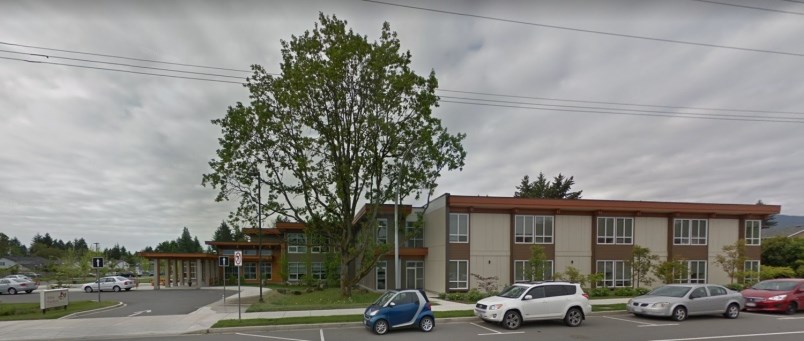After months of fighting for designation as an “essential visitor” for her 89-year-old mother in a Nanaimo seniors care home, Jeannette Harper won her battle this week — a right the province’s top doctor says every long-term care resident should have.
“I don’t think Dr. Bonnie Henry realizes just how difficult it is to obtain essential-visitor status,” Harper said Wednesday. “Until she more than recommends — but, instead, tells — long-term care homes they should be doing this, it’s not going to happen.”
Harper first applied to be an essential visitor to her mother, Marguerite Bell, in June, but was turned down. Her mother, who has Alzheimer’s, is at Eden Gardens, a dementia home for about 130 people in Nanaimo. “They felt that they were meeting all of my mother’s needs,” she said.
Harper and her sister appealed in November, taking the issue to the health authority, medical health officer and provincial seniors advocate. They had planned to raise the issue with the provincial health officer’s office, but instead, Harper was granted essential visitor status on Tuesday.
Essential visitors — limited to one designated person per resident — are primarily family, friends or registered volunteers who provide compassionate care, emotional support and assistance with feeding, mobility or decision-making.
Long-term care residents are also allowed a social visitor, an adult family member or friend who have visits scheduled in advance. Both essential and social visitors can be in a resident’s private room, but during an outbreak, only essential visitors are allowed.
Asked this week why as few as 15 per cent of long-term care residents have designated essential visitors, Henry said every resident who has a person who can care for them should have a designated essential visitor, but that has been a “challenge to operationalize.”
She noted that there are provincial guidelines, which were clarified last week, to make it easier for people to be assessed as an essential visitor.
Harper said Henry needs to instruct homes to allow residents an essential visitor. And she said that while B.C. Health Minister Adrian Dix suggested that those who are denied essential-visitor status should appeal, it’s not that easy.
Harper said her appeal took months of fighting and countless phone calls, and was very stressful — on top of the fear and frustration many families are already experiencing with a loved one living in a care home during the pandemic.
“It has been really, really difficult,” Harper said. “There’s a lot of animosity between myself and my sister and the managers at my mom’s care home to the point where we did think: ‘Should we be moving Mom?’ ”
Erin Beaudoin, executive director at Eden Gardens, said the Health Ministry’s definition of an essential visitor as one who meets “an essential need that would otherwise not be met in the absence of the visit” suggests that if staff can help someone eat, for instance, their request for an essential visitor wouldn’t be approved.
If someone recommends that a resident needs an essential visitor, Beaudoin said, medical and psychological assessments are done and taken to an interdisciplinary panel of up to 12 people, including nurses, care-home leadership, its chaplain and family. The panel reviews the information and makes a decision on whether an essential visit is needed. “Some of our elders have actually been improving in recent months and therefore, they don’t need an essential visitor as defined by the ministry,” said Beaudoin.
The lack of direction has left care-home operators pitted against families, she said. “The hardest part of the pandemic by far has been restricting families — it’s been heartbreaking and has resulted in months of sleepless nights, trying to follow the rules and understand the difference between orders, recommendations and guidelines, where can we be flexible and what is the law.”
Ninety-eight percent of Eden Gardens residents had been vaccinated as of Monday, she said.
Victoria’s Brenda Brophy, who now cares for her 100-year-old mother, Dot Finnerty, at home, said she applied for essential-visitor status twice at Mount St. Mary’s, where her mother was a resident, only to be turned down.
On Sept. 6, her mother fell, breaking ribs, and Brophy was allowed to help feed and care for her mother in her private room. A week later, as her mother showed signs of improvement, the essential-visitor status was revoked.
Brophy took her mother out of the facility on Sept. 23.
“I never did get essential-visitor status,” she said.
“If I had, I wouldn’t have risked moving her.”




